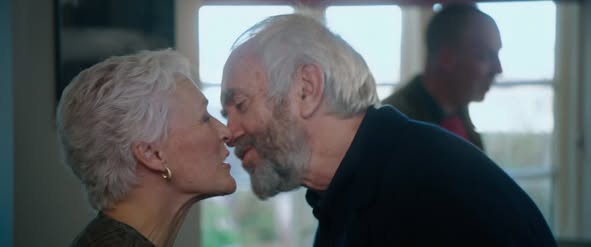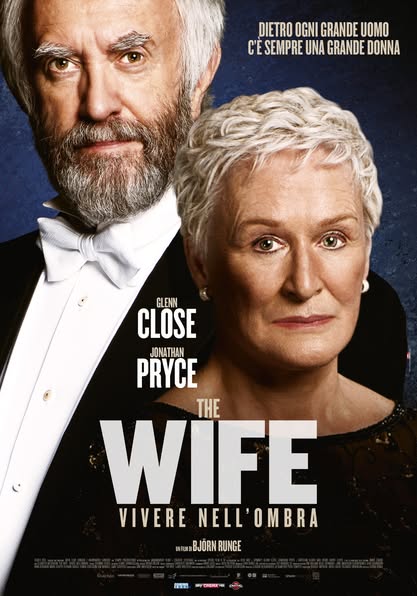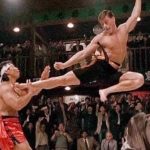The Wife (2017)

The Wife (2017) is a compelling drama directed by Björn Runge that explores themes of identity, sacrifice, and the complexities of marriage. Anchored by powerful performances, particularly from Glenn Close, the film delves into the life of Joan Castleman, the long-suffering spouse of a celebrated author, Joe Castleman.

The story unfolds as Joe, played by Jonathan Pryce, prepares to receive the Nobel Prize for Literature. As they travel to Stockholm for the ceremony, the film reveals the intricacies of their relationship through flashbacks and present-day interactions. Joan, who has devoted her life to supporting Joe’s writing career, begins to confront the sacrifices she has made for his success and the impact it has had on her own identity.
Glenn Close delivers a remarkable performance, capturing Joan’s internal struggles with grace and subtlety. Her portrayal of a woman who has long been in the shadows of her husband’s fame is both poignant and relatable. Through her expressions and nuanced dialogue, Close conveys the depth of Joan’s emotions, from pride to resentment, making her character one of the film’s most compelling aspects.
The narrative explores the dynamics of power within their marriage, highlighting the gender inequalities that have persisted in the literary world. Joan’s sacrifices become increasingly apparent as the story progresses. She has not only supported Joe emotionally but has also played an integral role in his writing, often going unrecognized. This raises questions about authorship, recognition, and the often-invisible labor that women contribute to their partners’ successes.

Runge’s direction is thoughtful, allowing the film to unfold at a measured pace that invites reflection on the characters’ choices and motivations. The cinematography captures the contrasts between the glamorous public life of Joe and the more intimate, often strained moments between him and Joan. The film’s visual style enhances its themes, illustrating the dichotomy between public accolades and private struggles.
The screenplay, adapted from Meg Wolitzer’s novel, is sharp and insightful, weaving together personal and societal themes. It deftly balances moments of tension with quiet introspection, allowing viewers to engage deeply with Joan’s journey. The dialogue is rich with subtext, revealing the complexities of their marriage and the emotional toll it takes on both characters.

As the story unfolds, Joan grapples with her own ambitions and desires, leading to a climactic revelation that challenges the status quo of their marriage. The film’s exploration of identity and self-worth resonates strongly, particularly in the context of the sacrifices women often make for their partners.
The Wife received critical acclaim for its performances and storytelling, earning Glenn Close an Academy Award nomination for Best Actress. The film’s exploration of female empowerment and the quest for recognition in a patriarchal society struck a chord with audiences and critics alike.
In conclusion, The Wife is a thought-provoking examination of marriage, sacrifice, and the complexities of identity. With its strong performances, particularly from Glenn Close, and its nuanced exploration of gender dynamics, the film invites viewers to reflect on the often-unseen contributions of women in relationships and their struggles for recognition. It stands as a powerful reminder of the importance of self-identity and the courage it takes to reclaim one’s voice.











